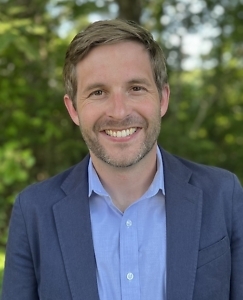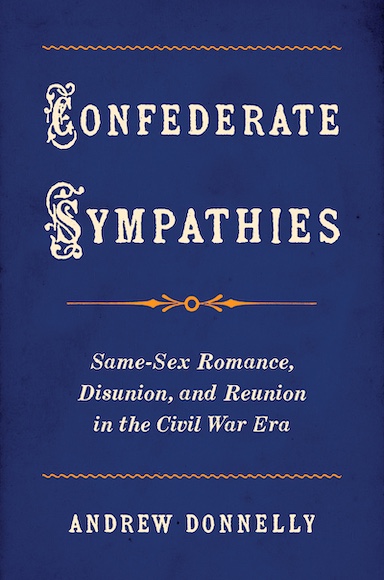Family Secrets Laid Bare
Ann Patchett talks with Chapter 16 about her bestselling novel Commonwealth
Ann Patchett hadn’t planned on promoting the paperback release of last year’s bestselling Commonwealth: no book tour, no interviews, no well-placed op-eds around the time of the novel’s paperback publication. But I didn’t know that when I arrived at her Nashville home one recent rainy afternoon for our interview appointment, and I felt a little bad for breaking up the perfect game she’d been pitching since the paperback hit stores—including her own Parnassus Books, which she co-owns with Karen Hayes—on May 2. Apparently she decided to make an exception for Chapter 16.
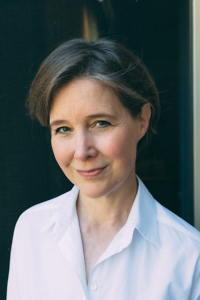
What follows is a brief and lightly edited excerpt from an almost forty-minute-long interview, a conversation which also covers Patchett’s desire to study acting, how being a bookseller affects her reading list, the nonfiction book she’s writing about women’s suffrage (due from HarperCollins in April 2020), and the importance of voting in our current age. You can hear the podcast here.
Chapter 16: Given the autobiographical nature of Commonwealth, what has the reaction to this novel been like from your family?
Ann Patchett: It’s really been fine. I talked to them before I started and while I was writing. When I was finished, I gave everybody a draft, before I had done much editing, and said, “Does anybody have any problems?”
One person in my family didn’t like the book but was really, really nice to me about it and just kind of said nothing. Everybody else said, “Boy, this was uncomfortable, but it’s your best book, and we love you and we’re proud of you.” I think that everybody had a little PTSD experience from the book, but they were really positive, supportive, and sweet. One of my stepsisters said that some friend of hers had read the book and called her excitedly and said she knew which character she was. I said, “Seriously? That was so obvious to anyone who knew you at all.”
Chapter 16: When I started to read the book, I tried as hard as possible to forget that Ann Patchett existed.
Patchett: I appreciate that, and when the people I meet who do have problems with it, I think, “There aren’t that many people who know me.” I was out in Southern California last week and did a fundraiser for my stepmother’s library. It was a tiny little town in Southern California, and a lot of people in that room knew me, knew my dad, knew my stepmother. There were a lot of questions about autobiography. People were saying, “I was trying to figure out what was true and what happened and didn’t happen.” I was like,”You know what? This is really a rarefied little bunch, and I’m not worried about you guys at all.” I mean, for the vast majority of people who read the book, they’re not going to be parsing out aspects of my life.
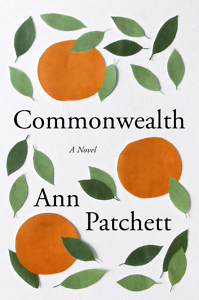 Chapter 16: If we go back to Philip Larkin, and we’re just doomed to screw up our kids….
Chapter 16: If we go back to Philip Larkin, and we’re just doomed to screw up our kids….
Patchett: Right…
Chapter 16: What do you think was unique about that generation of parents and how they screwed up their kids?
Patchett: Well, it’s funny because people say to me all the time, “Oh. these parents were so terrible! They were just so awful!” And I never meant for them to be bad parents. This is just the way parents were in the sixties and seventies. We were free-range kids, and the parents were living adult lives. I can remember my mother, who I think was a really good mother in many ways, but when we were kids we would say, “Come and play Monopoly with us.” She would say, “Well, that’s a children’s game. Adults don’t play children’s games. Why would an adult want to play tea party? Why would an adult want to play with dolls? That’s great, but that’s your stuff. I’ve got my stuff.”
And I think that’s such a difference now. Not only do parents keep an eye on their children all the time, but they get down on the floor and pretend to be children. And certainly not only did my parents never, never do anything like that, but the parents of my friends didn’t do that, either. We had very separate lives. We didn’t know what they were doing, and they didn’t know what we were doing, and we really didn’t care what the other one was doing. You just went out in the morning and you entertained yourself. You didn’t come in and ask anyone to entertain you. If you came in too early, they sent you back outside. If you came in too late, maybe somebody would go looking for you, but that was it. We just weren’t so involved with one other, as parents and children seem to be now.
To download the full podcast interview, click here. To listen online, click the play button below:
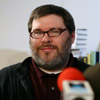
Stephen Usery is the producer of Book Talk, an author-interview program that airs daily on WYPL FM 89.3, a service of the Memphis Public Library and Information Center. He lives in Memphis.
